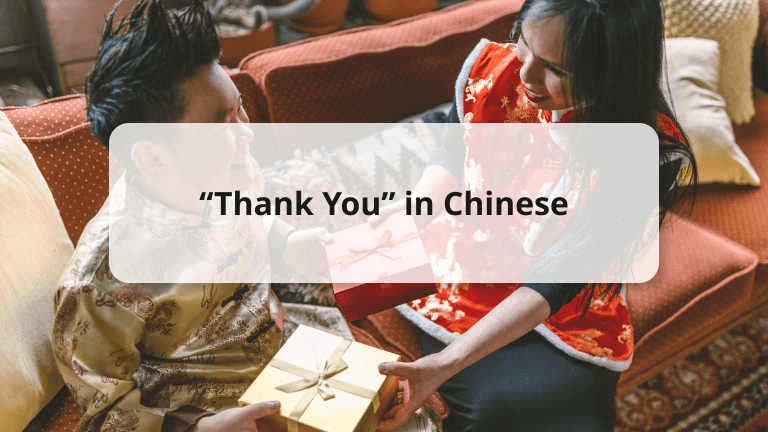“Thank you” in Chinese or thank you in Korean is one of the most basic and useful phrases to learn when starting your Chinese language journey. Learning to say thank you, is a common expression, regardless of the language you’re learning. However, thank you is one of the Chinese expressions that can be used in different situations, to express gratitude, and show your appreciation towards another person.
The Chinese culture is deeply rooted in honor, belief in luck, and acknowledgment. This means that formalities and expressions of gratuity are are an important aspect here – and its important to perform these in culturally appropriate ways depending on the different kinds of situations.
The most common way of saying “Thank You” in Chinese is expressed as 谢谢 (Xièxiè). However, the Chinese language is as diverse as its culture, and this means that there are a variety of ways to express your gratitude! Through this article, we will show you the a various ways to say Thank You in Chinese – making you prepared for any situation for appreciation!
Table of Contents
Thank You in Chinese: Casual Phrases
These casual phrases should be used for expressing thank you in informal situations.
1. Thank you – 谢谢(simplified)謝謝 (traditional) “Xièxie”
谢谢 (xièxiè) means “thank you” and is the most casual and widely used “Thank You” phrases in Chinese. This is especially common for native speakers in informal situations such as when receiving gifts from friends and family or for stranger on the street. Try learning how to write in Chinese characters, like “谢谢/ 謝謝”!
2. Thank you – 谢谢你。(simplified)謝謝你。(traditional) “Xièxie Nǐ”
This is a common variation of 谢谢 (xièxiè) whereby the 你 (nǐ ) is added as a casual form of the word “you”. The meaning of this phrase is closer to the English version of “Thank You”.
3. Thanks a lot! – 多谢!(simplified)多謝!(traditional) “Duōxièle!”
Another thank you synonym, that is informal and casual, is Duōxièle. It has much more energy and excitement to emphasize your appreciation to a friend or family member. It can also be used in working spaces as well, making it a versatile way of saying “Thank You”.
4. Thanks! – 谢了!(simplified)謝了!(traditional) “Xiè le!”
This is another informal and quick way to express gratitude between close friends and is often done through text as well.
5. You’re the best – 你太好啦 “Nǐ tài hǎo la”
This is an informal and widely used expression of extreme gratitude to a friend, family member or anyone close to you. It is commonly used in casual conversations to thank someone while also saying that you value their presence in your life.
6. Thank you for the coffee! – 谢谢你的咖啡! (simplified)謝謝你的咖啡! (traditional) ”Xièxiè nǐ de kā fēi!”
This is a very nice way to thank your friends if they took you out for a coffee date. You can hear similar pronunciations from the English word for “coffee” with 咖啡 “kā fēi”. So hopefully this phrase is easier for you to learn if you’re a native English speaker!
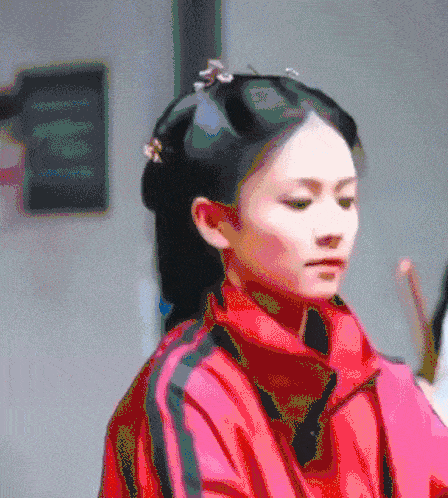
Thank You in Chinese: Superlative Phrases
Sometimes you would just like to be a little more gratuitous in your expression of appreciation for someone that has gone out of their way to help you. Here are some really accentuated phrases to really convey your deep gratitude for someone or their actions:
1. Sorry for the trouble! – 麻烦你了! (Simplified) 麻煩你了! (Traditional) ”Má fan nǐ le!”
The phrase 麻烦你了! (má fan nǐ le!) is a direct translation to “inconvenience to you.”, but the more practical and sensible meaning is “sorry for the trouble” is a more practical translation for thank you in Chinese. It is a really great expression of appreciation for someone who has done a lot to help you.
2. You’re Flattering me – 哪里哪里! (Simplified) 哪裡哪裡! (Traditional) ”Nǎ li nǎ li”
In English, this translates to “no, no” or “where, where” as in “you’re flattering me” or “you’re too kind”. This is an expression of thanks when you receive a compliment from someone. It can be used in the context of both formal as well as casual conversations. It is common on Chinese culture to deflect compliments as a form of humility rather than just saying (xièxiè) “thank you”.
Thank You in Chinese: Formal Phrases
1. Thank You – 谢谢您(simplified)謝謝您 (traditional) “Xièxie nǐn”
谢谢 (xièxiè) directly translates to “thanks” and 您 (nǐn) means “you” in the formal which is different from 你 (nǐ ) which is the casual form of “you”. This is a more polite and formal way of expressing thanks.
2. Thank you all for coming today – 谢谢大家的来临。(simplified)謝謝大家的來臨 (traditional) “xiè xiè dà jiā de lái lín.”
When addressing a group at a formal gathering such as a business meeting, a wedding or some other large group setting – there would need to be a formal expression of gratitude to accommodate the public setting. 谢谢大家… (xiè xiè dà jiā…) “Thank you all…” would be used as the first part of the phrase and this can be followed with 的来临。(…de lái lín.) — “…for coming here.”. You could add other phrases to this as well depending on what you want to express appreciation for.
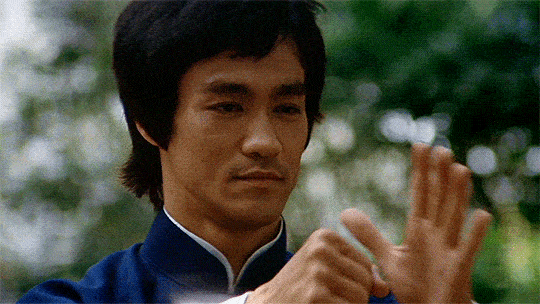
Thank You in Chinese: Idioms
Chinese, 成语 (chéngyǔ), is directly translated to “already made words” or “formed words”. Chinese idioms are a great, poetic and deeply novel way to express your gratitude to someone. They are also a great way of helping you sound like a native Chinese speaker, the more you use the m appropriately in conversations. Saying these as a form of gratitude really embodies the heart of appreciation for someone and their kindness. Here are some idioms related to gratitude:
1. To give a plum in return for peach – 投桃报李 (simplified)投桃報李 (traditional) “Tóutáobàolǐ”
“To give a plum in return for peach” is the literal meaning and direct translation. This idiom is from The Book of Songs, which literally means “he gives me a peach and I send a plum in return”. It expresses appreciation of good relationships with your friends and in particular – exchanging gifts between friends.
2. The kindness of recognizing someone’s worth – 知遇之恩 “Zhīyùzhīēn”
This idiom refers to the kindness of recognizing somebody’s worth. This idiom is derived from the story of Boya and Zhong Ziqi. Boya and Ziqi are companions because their shared passion for music. After Ziqi’s death from illness, Boya breaks his Guqin instrument in loving memory of his companion.
3. The grace of dripping water, the report of the gushing spring – 滴水之恩,涌泉相报 (simplified)滴水之恩,湧泉相報 (traditional) “Dīshuǐ zhī’ēn, yǒngquánxiāngbào”
This idiom is from old folklore, which teaches that someone helps you, even if it is just a little favor, you should return their kindness with interest. It is good embodiment of appreciation and repaying kindness.
4. We should appreciate our teacher’s teaching. – 我们要感恩老师的教导。 (simplified)我們要感恩老師的教導。(traditional) “Wǒmen yào gǎn’ēn lǎoshī de jiàodǎo.”
This idiom expresses gratitude for those who help us grow and teach us. It praises these individuals in our lives and places value in them as people and in their actions. It is a very humble and gratuitous teaching for everyone to practice.
5. People should be grateful – 人要懂得感恩。“Rén yào dǒngdé gǎn’ēn.”
This idiom expresses the basic teaching of gratitude in our everyday lives, even for the little things. This is commonly used expression during festivals such as Thanksgiving.

Thank You in Chinese: Useful Phrases
Here are two examples of conversations where you would thank someone and how the other person would reply in a normal situation.
Dialogue 1
A: 谢谢你的咖啡, 我的朋友! (simplified) – 謝謝你的咖啡, 我的朋友! (traditional)
A: Xièxiè nǐ de kā fēi, wǒ de péngyǒu!
A: Thank you for the coffee, my friend!
B: 没什么,让我们再約一次! (simplified) – 沒什麼,讓我們再約一次! (traditional)
B: Méishénme, ràng wǒmen zài yuē yīcì!
B: It’s nothing, lets do this again sometime!
Dialogue 2
A: 麻烦你了, 我知道這不容易! (simplified) – 麻煩你了, 我知道這不容易! (traditional)
A: Má fan nǐ le, Wǒ zhīdào zhè bù róngyì!
A: Sorry for the trouble, I know its not easy!
B: 别担心, 小意思. (simplified) – 別擔心, 小意思. (traditional)
B: Bié dānxīn, xiǎo yì.sī.
B: Don’t worry, its no big deal.
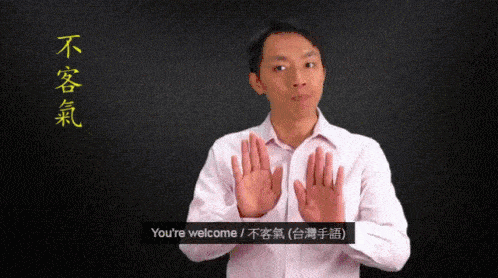
Thank You in Chinese: How to Answer?
Now that you have learned how to say thank you to others in Chinese, it is important to also know how to respond when others thank you too! In Chinese culture, its is common for people being thanked to downplay their actions so has to remain humble. Lets look at some of the common ways you can reply to someone who expresses their gratitude for you:
1. You’re Welcome / Don’t be polite – 别客气 (simplified) 別客氣 (traditional) “bié kè.qì”
This is the most common way to reply to someone thanking you, and is the equivalent of “you’re welcome” in English.
2. You’re Welcome / No need for thanks – 不用谢 (simplified)不用謝 (traditional) “bú yòng xiè”
This is the a variation of the previous phrase. It includes the 謝 “xiè” (thanks) which literally makes the phrase mean that “there is no need for thanks”.
3. Thanks for what? – 谢什么呢 (simplified)謝什麽呢 (traditional) “xiè shénme ne”
This is a phrase that essentially deflects someone’s thanks in an effort to downplay your actions and be humble.
4. It’s nothing – 没事 (simplified)沒事 (traditional) “méi.shì”
Again, this is another expression to make it seem like you did not do much and don’t need thanks. Humility is really at the core of these replies, as it is an important part of Chinese culture.
5. It’s no big deal – 小意思 “xiǎo yì.sī”
Here is another expression that tries to make the person giving thanks know that it was not an effort or an inconvenience for you to help them. The direct translation is “small meaning”. Its basically the English equivalent of “Don’t mention it” when someone thanks you.
Summary Table of the Different Types of “Thank You” Phrases
| Simplified Chinese | Traditional Chinese | Pin-Yin | English | |
| 1 | 谢谢 | 謝謝 | Xièxie | Thank You |
| 2 | 谢谢你。 | 謝謝你。 | Xièxie Nǐ | Thank You |
| 3 | 多谢! | 多謝! | Duōxièle! | Thanks a lot! |
| 4 | 谢谢你 | 謝謝你 | Xièxie Nǐn | Thank You |
| 5 | 谢了 | 謝了 | Xiè le | Thanks! |
| 6 | 你太好啦 | 你太好啦 | Nǐ tài hǎo la | You are the Best! |
| 7 | 谢谢你的咖啡 | 謝謝你的咖啡 | Xièxiè nǐ de kā fēi! | Thank you for the coffee! |
| 8 | 麻烦你了 | 麻煩你了 | Má fan nǐ le! | Sorry for the trouble! |
| 9 | 哪里哪里 | 哪裡哪裡 | Nǎ li nǎ li | You’re Flattering me |
| 10 | 谢谢您 | 謝謝您 | Xièxie nǐn | Thank You (formal) |
| 11 | 谢谢大家的来临 | 謝謝大家的來臨 | Xiè xiè dà jiā de lái lín. | Thank you all for coming today |
| 12 | 投桃报李 | 投桃報李 | Tóutáobàolǐ | To give a plum in return for peach |
| 13 | 知遇之恩 | 知遇之恩 | Zhīyùzhīēn | The kindness of recognizing someone’s worth. |
| 14 | 滴水之恩,涌泉相报 | 滴水之恩,湧泉相報 | Dīshuǐ zhī’ēn, yǒngquánxiāngbào | The grace of dripping water, the report of the gushing spring |
| 15 | 我们要感恩老师的教导 | 我們要感恩老師的教導 | Wǒmen yào gǎn’ēn lǎoshī de jiàodǎo | We should appreciate our teacher’s teaching. |
| 16 | 人要懂得感恩 | 人要懂得感恩 | Rén yào dǒngdé gǎn’ēn. | People should be grateful. |
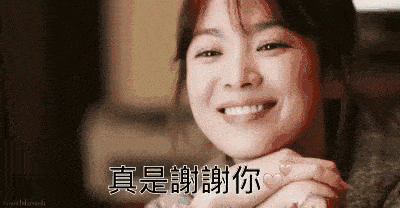
Xièxie (谢谢 -謝謝) for reading our article on how to say “Thank You” in Chinese!
Chinese is just as diverse and full of variety as its culture. There are so many heartfelt and creative ways to express your emotions, gratitude and so many more sentiments in Chinese. Learning how to say “Thank You”, like learning “goodbye” and “hello” are just one of the many crucial stepping stones that you have just taken on your journey to embrace the Chinese language and culture!
We hope this article has prepared you to express your gratitude in a variety of cool and creative ways and makes you ready for any situation where you would like to show your appreciation to your Chinese friends, family or even strangers that show you kindness.
Start taking online Chinese courses with AmazingTalker!
